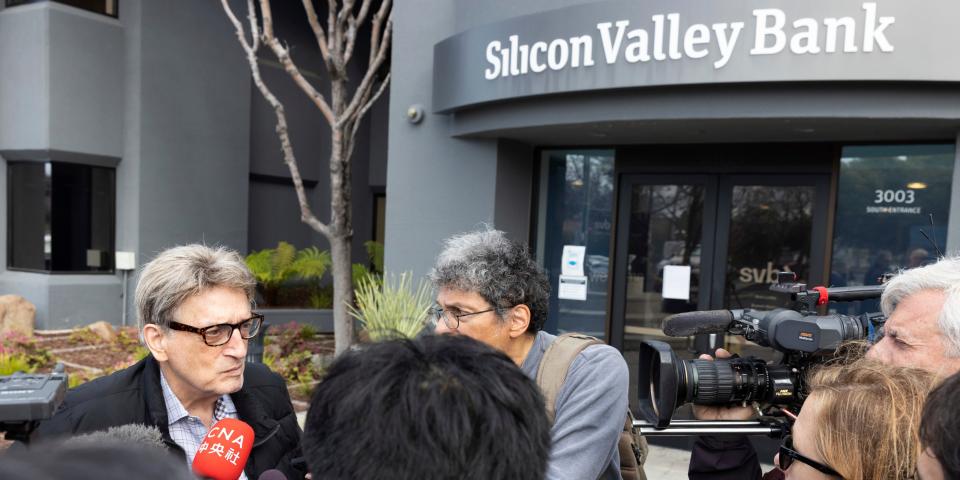Top banks may have to increase their capital buffers by 20%, report says

Big banks may have to boost their capital buffers by about 20%, sources told the Wall Street Journal.
Regulators could propose the increase as soon as this month, the report said.
Banks with at least $100 billion in assets may have to comply with tougher capital rules.
Big banks may have to boost their capital buffers by about 20%, as regulators look to reinforce the financial system after the string of failures at regional lenders earlier this year, sources told the Wall Street Journal.
A proposal may come as early as this month, and the exact size of the capital increases will depend on each bank's activities, the report added. For example, top banks with large trading businesses will see the biggest boosts.
In addition, institutions that rely heavily on fees may also have too widen their capital buffers, potentially including banks that generate income from wealth management fees or swipe fees on card transactions, the report said. The new rules are seen categorizing fee-based activities as an operational risk.
Plans to beef up bank capital predated the March collapse of Silicon Valley Bank, which led to other regional banks failures, the Journal said.
But the new rules will apply to more banks, namely those with at least $100 billion in assets. That's compared to the current threshold of $250 billion that triggers regulators' stiffest capital rules. Silicon Valley Bank had about $209 billion in assets before its collapse.
The tougher rules will apply to megabanks even though they received influxes of deposits as customers fled smaller lenders and flocked to "too big to fail" banks. And stricter requirements could result in banks charging customers more for services.
Still, Federal Reserve Vice Chair for Supervision Michael Barr told Congress last month that, "The banking system might need additional capital to be more resilient precisely because we don't know the nature of the kinds of ways we might experience shocks to the system, as has happened with these recent bank failures."
Read the original article on Business Insider

 Yahoo Sports
Yahoo Sports 